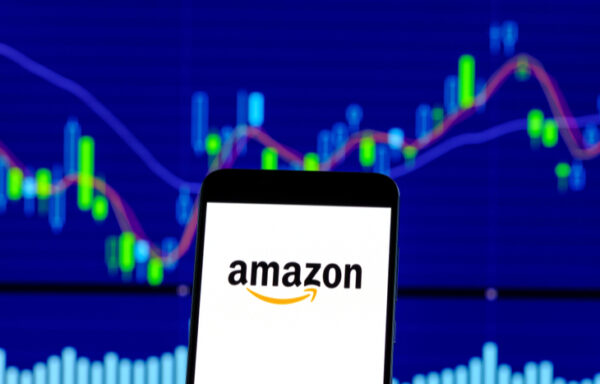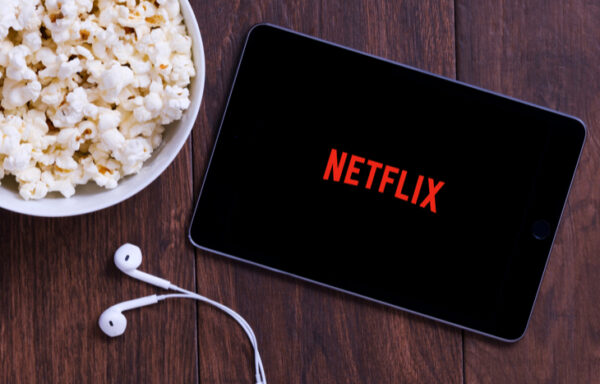Top 10 5G Patent Holders Around the Globe
Besides cannabis, the sector I’m most asked about is 5G.
So for this week’s Making the Grade, I decided to look at the top 10 companies at the leading edge of 5G development.
But first, to know where you’re going you have to know where you’ve been…
So let’s take a short look at the history of mobile phones to get a glimpse of why the next mobile generation is such a big deal.
From “The Brick” to Bluetooth
In the late 1960s and early 1970s, no one had a cellphone.
In the 1980s, they were the toys of the affluent – status symbols that retailed for thousands of dollars. Only movers and shakers had cellphones.
Most of us fondly remember Gordon Gekko’s Motorola DynaTAC 8000X, aka “The Brick,” in the 1987 film Wall Street.
If you don’t, you probably weren’t born yet.
In 1984, there were a mere 91,600 cellular subscribers in the U.S. By 1985 – despite the gargantuan $3,995 price of a DynaTAC – the number of subscribers had surged 271% to 340,123.
Back then, the standard was 2G (second generation). And Motorola was the top handset maker, with a 70% market share by 1985.
Thousands of people were on waiting lists to buy the DynaTAC 8000X.
But it was a slow burn. It’s amazing to think just 2% of Americans had mobile phones by 1990.
Then, a decade later, everything began to change and accelerate. Wireless technology evolved, and the Europeans swooped in. The biggest handset makers were overseas as cellphones started on their path to ubiquity.
Of course, the world was transformed in 2007. Apple’s iPhone was introduced, and this torpedoed the once-fashionable BlackBerry into obscurity.
“Smartphones” were born. No longer were we carrying around dumb bricks of plastic – even though they’d shrunk considerably from the one featured in Gekko’s infamous beach walk.
Email, music, the internet and apps were suddenly available to everyone. And the cellular networks had to change… to become more robust.
We had 3G, 4G and then 4G LTE standards. And despite all that we do on our phones now… it’s not enough.
Our personal data demands are increasing exponentially as our smartphones serve as a tether to every aspect of our lives. The traffic generated by smartphones will increase 10 times over from 2016 to 2022.
From conducting business and engaging in social media to wandering the internet in search of new cat videos and streaming our favorite programs through a wide variety of services.
But salvation is on the horizon in the form of the next network upgrade… 5G.
5G will advance connected vehicles (everything from cars to ships), the Internet of Things and a whole host of other technologies we’ve been patiently waiting to become commonplace.
5G is that bridge. And we can’t evaluate who’s on the leading edge of this industry without examining which companies hold the most patents…
The Patent Powerhouses

China and the U.S. are racing to be the leader in 5G. And at the company level, it’s a fairly tight race.
For now, China’s Huawei is edging out America’s Qualcomm (Nasdaq: QCOM) for the total number of 5G patents.
China’s ZTE Corp. (OTC: ZTCOY) also cracks the top 10. And Qualcomm is joined by fellow American tech giants “Big Blue” IBM (NYSE: IBM) and Intel (Nasdaq: INTC).
Though Huawei is in that No. 1 spot, it’s worth noting that the U.S. has more total 5G patents than China.
Of course, China and the U.S. aren’t the only players.
South Korea’s Samsung (SMSN.IL) has the third most 5G patents, followed by fellow Korean electronics major LG (LGLG.IL).
The European telecom giant Ericsson (Nasdaq: ERIC) also makes the top five.
Meanwhile, Japan’s Sharp Corp. (OTC: SHCAY) and Sony Corp. (NYSE: SNE) round out the list.
As the 5G market matures, these companies will be looking to weaponize their patent portfolios. (Though eagle-eyed investors will notice most of these companies are slow movers and shares are not easy for average investors to snag.)
At the moment, we’re at the dawn of the 5G revolution. We’ll see a more expansive rollout over the next couple of years.
The reality is, 5G is going to be magnitudes faster than the generations before it.
But – as with anything the world waits on with bated breath – 5G will be here sooner than you think.
[adzerk-get-ad zone="245143" size="4"]About Matthew Carr
Matthew Carr is the Chief Trends Strategist of The Oxford Club. He is the Editor of Strategic Trends Investor, The VIPER Alert, Dynamic Fortunes, Trailblazer Pro and Profit Trends. His unique take on investing – which involves using a strategic system that chooses companies based on pre-momentum, high growth and discounted prices – has led to countless outsized gains.
Matthew cut his teeth in the industry as a writer for the energy trade publications Natural Gas Week, Gas Market Reconnaissance and Oil Daily. He also dug into exports and international trade finance for Business Credit magazine.
With two decades of financial experience under his belt, Matthew’s expertise ranges from classic industries such as retail and oil and gas to cutting-edge markets like 5G, emerging tech, cybersecurity and cannabis. If it’s moving the markets, you can bet Matthew is there.






